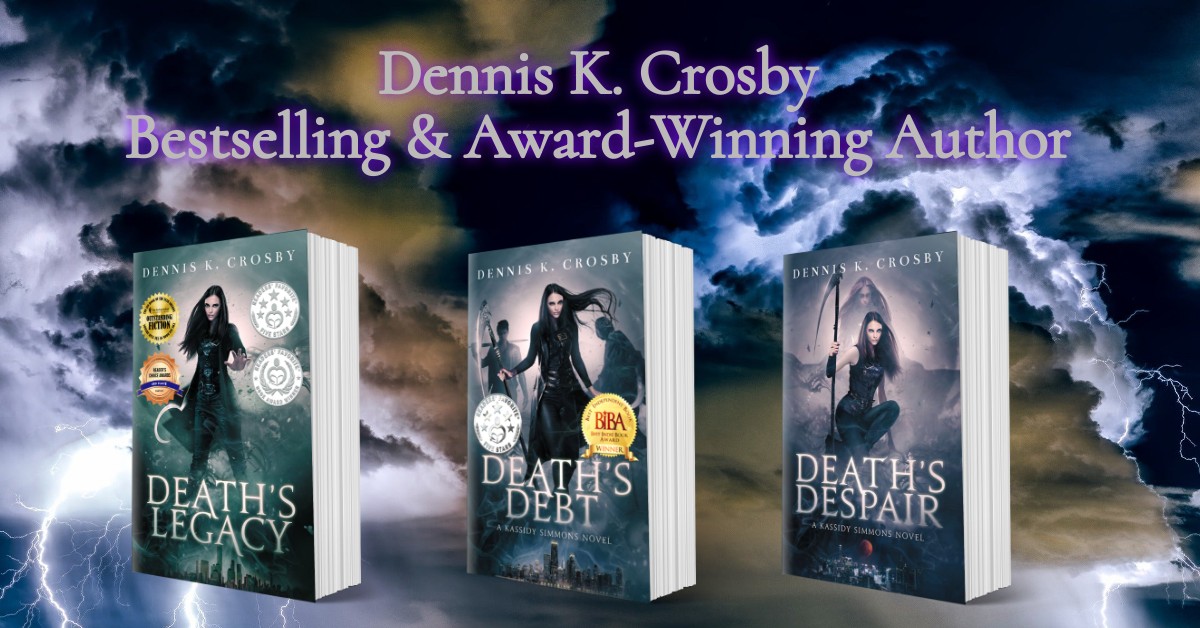We caught up with the brilliant and insightful Dennis K. Crosby a few weeks ago and have shared our conversation below.
This question comes up often. The notion of writer’s block is interesting one to me. I get what people are going for when they say they have it, but the concept is fully fixable in my opinion. Throughout my academic and professional life, I’ve been fascinated with understanding what makes people tick. What drives us to do the things we do? What drives us to connect with the people that we inevitably associate with? In the end, life is about connection. Connection to nature, to people, to family, to our work–and most assuredly, to the things we create. What happens when we don’t feel a strong connection to any of those things? We lose interest. We leave jobs, we move on from relationships, we relocate because we no longer feel connected to the home or city in which we live. The same thing happens with what we create. To me, writer’s block is simply our inability to connect with the story we’ve created, and if we are not connected to it, the reader most certainly will not be. To overcome that, I do my best to understand the character(s) first. So, I “interview” them. I write out a series of questions and answer them as if I am the character. It helps me better understand them and their motivations (especially the antagonist). Once I understand them, once I see their depth and drive, I become more invested in their journey. That little trick helps me reconnect to the story and move forward with its development.
Thanks for sharing that. So, before we get any further into our conversation, can you tell our readers a bit about yourself and what you’re working on?
Like many indie authors, I have a full-time job that keeps me pretty busy. I’ve worked in the non-profit sector for the past 15 years, primarily with adults struggling with mental health challenges, addiction, and/or chronic homelessness. I currently work with Voices of Our City in San Diego, and we provide support to unsheltered adults through music and the arts.
There is so much advice out there about all the different skills and qualities folks need to develop in order to succeed in today’s highly competitive environment and often it can feel overwhelming. So, if we had to break it down to just the three that matter most, which three skills or qualities would you focus on?
I first tried to tackle novel writing in 1998 or 1999–shortly after finishing my undergraduate degree. I worked on a vampire story for the better part of a decade before it became readily apparent that I had no clue what I was doing. I’d excelled in essay and creative writing in elementary school, junior high, and high school, but I didn’t truly learn the fundamentals of the craft until much later in life. Taking my first writing workshop was crucial in my development as a writer. Not only did I learn more about the craft, but I learned more about the writing community. Realizing that you’re not alone in your experiences, thoughts, and frustrations goes a long way toward building comfort as a creative.
All the wisdom you’ve shared today is sincerely appreciated. Before we go, can you tell us about the main challenge you are currently facing?
The greatest challenge for me, and many of the indie authors I know, is balancing time. Time is our best friend, and at times, our worst enemy. Like most of my colleagues, I have a full-time job separate from my writing life, and so I have to be very intentional about scheduling my time. That includes my writing time, my social time, and my down time. My greatest desire is to be in a position where I can be a full-time writer. I am hopeful that a day will come when I’m able to wake up and only focus on my writing projects, but until then I have to find balance with all the things I need to feel whole. This is not always an easy task. Work is work. That schedule is always going to be set, so the challenge comes with the other aspects of my world. I do my best to intentionally schedule writing time and social time. I also do my best to schedule time to simply do nothing. But we live in a world that constantly tells us to go, go, go, so the down time often feels selfish and lazy, nevertheless, I think it’s necessary.
Contact Info:
- Website: http://denniskcrosby.
com - Instagram: https://www.
instagram.com/denniskcrosby - Facebook: https://www.
facebook.com/Denniskcrosby
- LinkedIn: https://www.
linkedin.com/in/denniskcrosby - Twitter: https://twitter.com/
denniskcrosby











